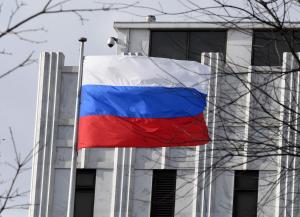Feb. 3 (UPI) — Russia’s ambassador to South Korea warned Moscow would take measures if Seoul chooses to go ahead and deploy the U.S. missile defense system THAAD, according to a South Korean newspaper.
The joint U.S.-South Korea decision to deploy THAAD was reached in July 2016.
Russia has not been as vocal as China in its opposition to the missile defense system, which Beijing claims is being used for monitoring purposes.
But on Friday, Ambassador Alexander Timonin told South Korean reporters if the system is placed in position, Russia has no choice but to take steps to ensure its security, Maeil Business reported.
“A THAAD deployment may have a dangerous impact on the situation on the peninsula…We regard it as part of the U.S. global missile defense program, which is stationed along the Russian borders and therefore poses a threat to our security,” Timonin said.
China is suspected of boycotting South Korean companies and banning performances of K-Pop artists in response to the decision.
The statement from the top diplomat in Seoul came on the same day U.S. Secretary of Defense James Mattis agreed with South Korean leaders that THAAD deployment is to take place as planned.
According to local newspaper Munhwa Ilbo, Mattis said North Korea provocations have made it necessary to deploy missile defense.
Mattis also said the United States would work with allies for peace, stability and freedom in the Asia-Pacific.
In Beijing, during a regular press briefing on Friday, Chinese foreign ministry spokesman Lu Kang said China’s position on THAAD has not changed.
“The U.S.-South Korea pursuit of THAAD deployment can undermine China’s national strategy and prosperity, and also undermines regional strategic balance,” the spokesman said, according to Yonhap. “It does not help solve the problems on the Korean peninsula.”
Lu also described THAAD deployment as the “wrong path.”
China has taken 43 retaliatory measures against South Korea entities since the decision was reached, according to Seoul’s Korea Institute for National Unification.
A total of 23 of those cases were culture-related, 15 involved South Korean businesses and five targeted Seoul’s diplomatic corps, politicians and military.

COMMENTS
Please let us know if you're having issues with commenting.